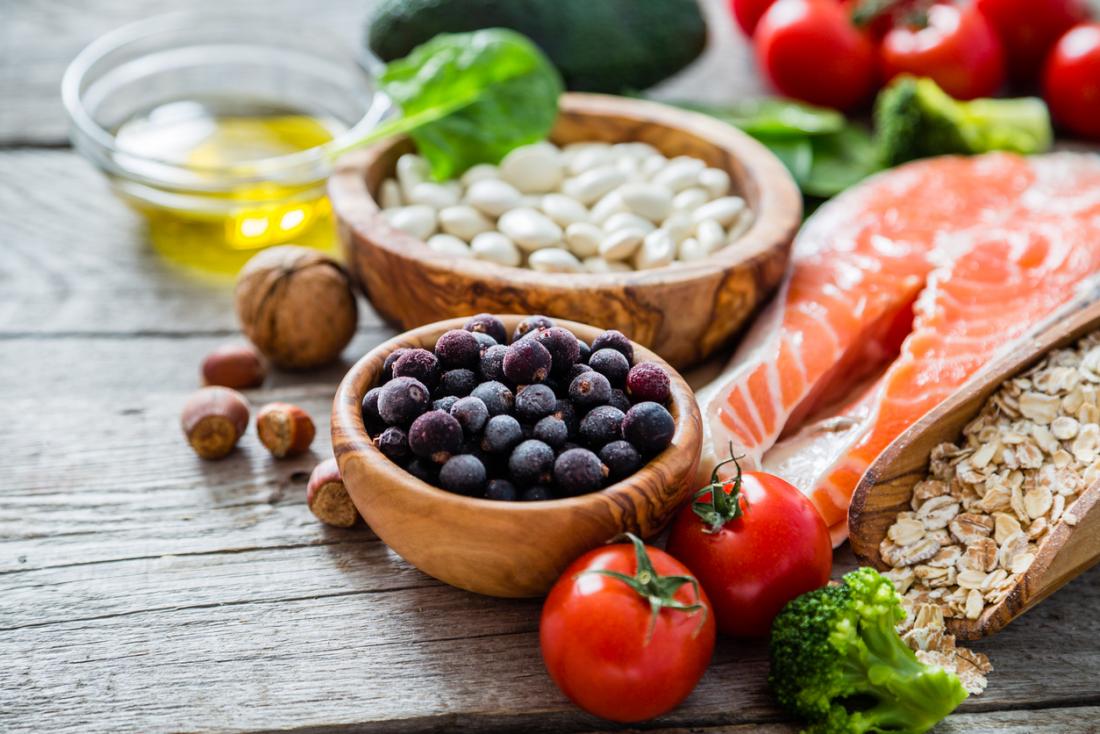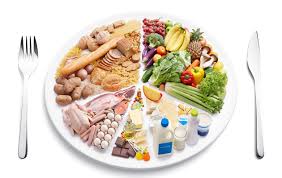What Is Balanced Diet?
Balanced diet refers to a diet that includes foods from all major food groups, or a diet that contains the appropriate levels of carbohydrates, fats, proteins, vitamins, minerals, and water necessary to maintain healthy life. There are five main food groups: cereals, vegetables, fruits, dairy products and meat and meat substitutes.
Diversity is the key to a healthy and balanced diet. You need to eat foods from all food groups to make sure your body gets the vitamins, nutrients and energy it needs to function properly and be healthy. It also means not cutting food out of your diet. The fear of fat makes people completely cut it off from their diet, which is actually a bad thing. Your body needs the fat to metabolize properly and release the energy your body works with. When you take off fat totally, you would get cravings to eat unhealthy processed foods that are not needed in the body.

Why Balanced Diet Is Important
Body weight control: Consuming balanced diet leaves less room for high-calorie foods that normally cause you to gain weight in your body. Examples of foods that can lead to excess weight gain are processed foods or chunky snacks. The human body barely uses these foods and stores them rather than using them as an energy source. Consuming carbohydrates such as: oats, vegetables, fruits, legumes with low sugar levels helps the body stay full longer. These complex carbohydrates decompose in our body and are released into the bloodstream over a long period of time. In this way, triggers in the brain are prevented from craving simple sweet snacks.
Strengthens The Immune System In Fighting Diseases: A well-balanced diet produces essential nutrients and helps maintain important immune system cells that fight off diseases and significantly improve vascular function. Since the immune system is highly dependent on the circulatory system, better vascular function can quickly provide cells that fight the disease in the affected areas.
Invigorate The Body: The food we eat has a tremendous impact on the energy we have throughout the day. Nutrient-rich foods are digested and released into the system over an extended period of time. On the other hand, easily digestible foods (simple or sweet carbohydrates) digest much faster and cause additional hunger in much less time. This can lead to spikes in the release of energy into the blood, followed immediately by depression. Ideally, the goal is to maintain the energy level throughout the day without side effects. If we eat well, we can save energy relatively evenly from morning to night.
Sleep Better: There is little that our body needs more than sleep. It allows our muscles to recover after daytime activities and workouts. Sleep rejuvenates the brain and makes it work the next day at a high level. Otherwise, we feel slow, energy levels remain low, concentration levels are affected, and the craving for less useful foods is triggered. Poor eating habits often cause stomach problems and indigestion because toxins can enter the bloodstream.
More Brain Power: Eating a healthy and balanced diet helps to increase the functionality of the brain. Omega-3 fatty acids offer a number of important benefits, such as: improved memory and learning ability. Eating balanced diet also help combat debilitating mental disorders such as depression, dementia, and schizophrenia. Foods like salmon, nuts, avocado contain these essential fatty acids. Omega-3 fatty acids can provide long-term benefits in promoting synaptic plasticity, which can help develop and enhance our memory and learning.

How To Achieve A Balanced Diet
Listed below are the major food groups that can be taken to achieve a balanced diet.
Fruit: The fruits are rich in sugar. This sugar is natural, but fruits are still a better choice than other sugary foods. People who pay attention to their carbohydrate intake can eat fruits such as melon and avocado.
Vegetables: Vegetables are the main source of essential vitamins and minerals. Dark leafy vegetables usually contain most of the nutrients and can be eaten with every meal. Eating a variety of vegetables will help you get all the nutrients that your body need in order to function properly and be healthy.
Grain: Researchers carried out shows that Americans consume more than any other refined white flour meal. Refined white flour has a poor nutritional value because the husk of the cereal. The hull is the main ingredient of cereal food. However, whole grains are made using all the grain including the hull which helps provide more nutrient needed in the body. Try to replace white bread and pasta with whole grains.
Protein: This are known as essential nutrient which helps in building the muscle and aid brain development. The best options are lean or low-fat proteins such as fish, chicken and some pieces of pork and beef. Removing the skin and visible fat is a simple way to reduce the amount of fat and cholesterol in the meat. The health and nutrition of the animal are important and influence the fatty acid profile of the meat. Grass-fed choices are therefore ideal.
Dairy: Dairy products such as milk, cheese helps to provide calcium needed for healthy bones, vitamin D and various essential nutrients needed in the body, Diary product is also an important source of fat, it is always better to choose diary product with low-fat or fat-free content. Herbal milk products such as flaxseed, almonds or soya are usually fortified with calcium and other nutrients, making them an excellent substitute for dairy products.
Oil: When choosing oil it is better to go for low-fat content of products that contain oil, such as mayonnaise. Low fat oils like olive oil can replace the greasier or the normal vegetable oil in your diet. Also avoid fried foods as they contain a lot of empty calories.

